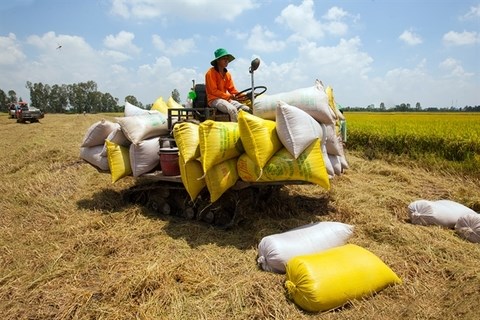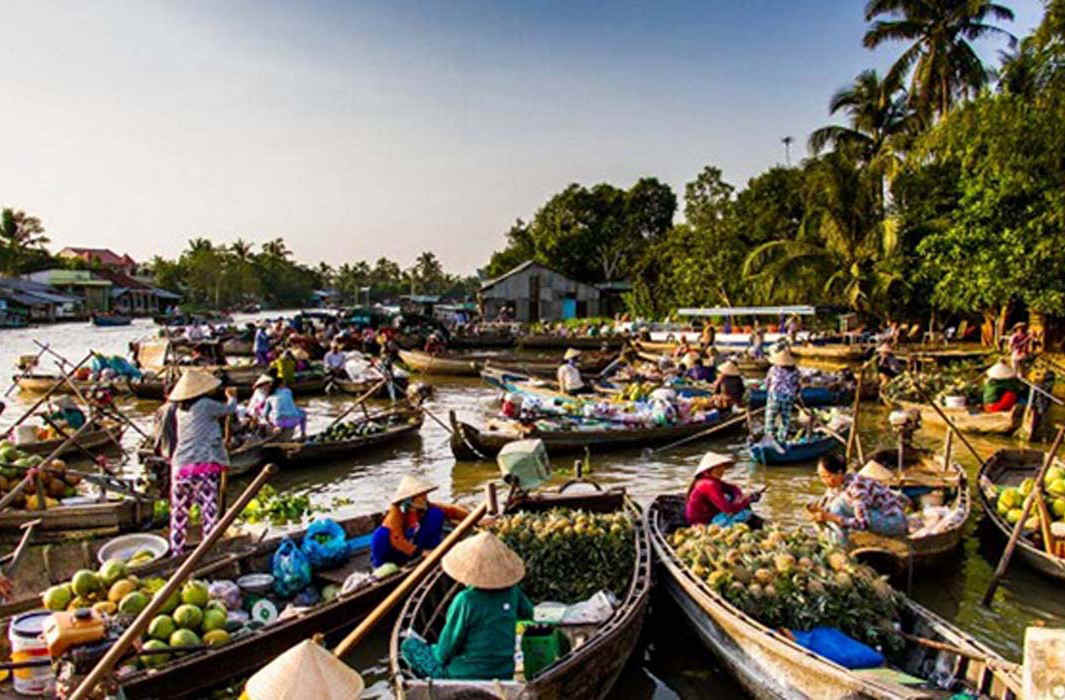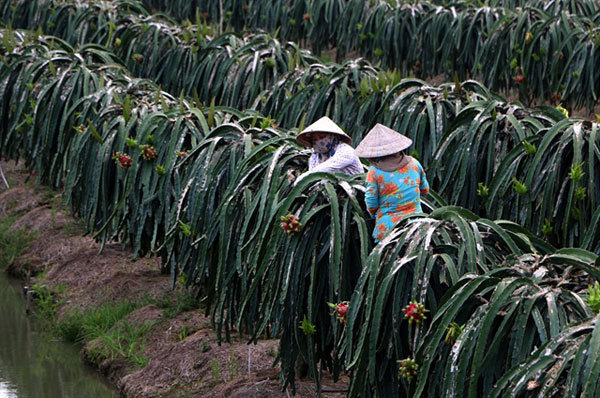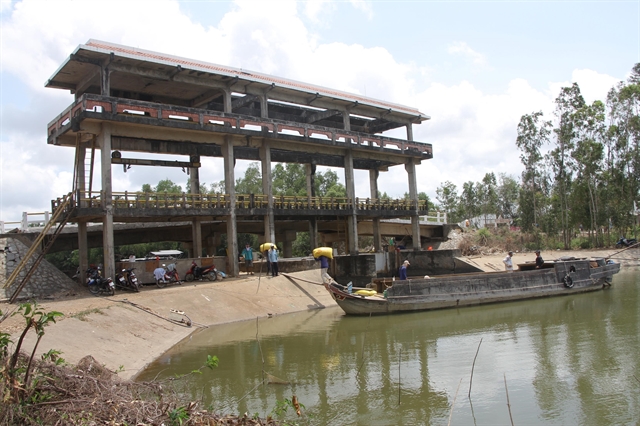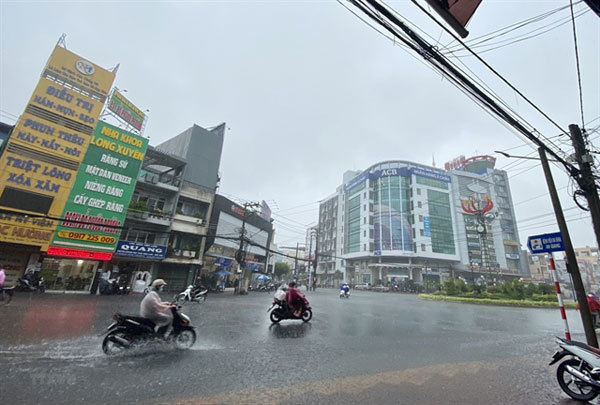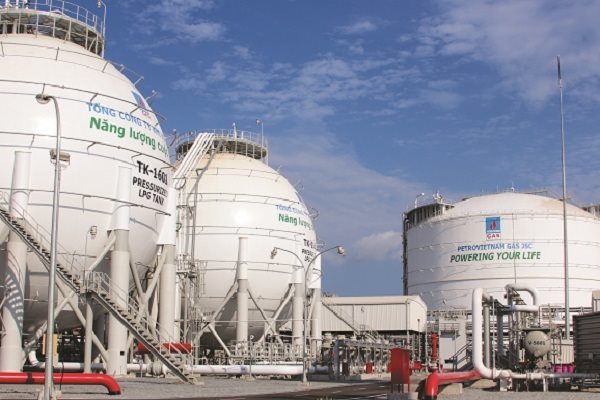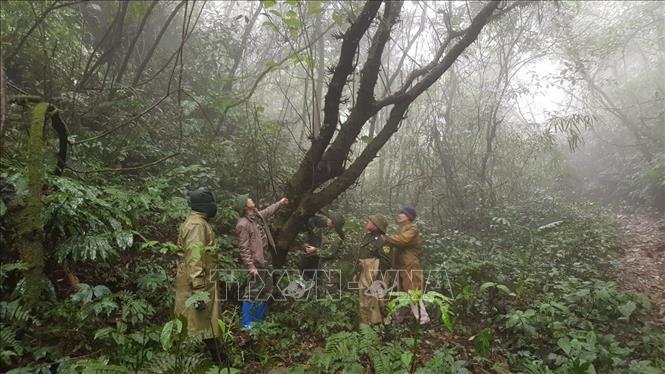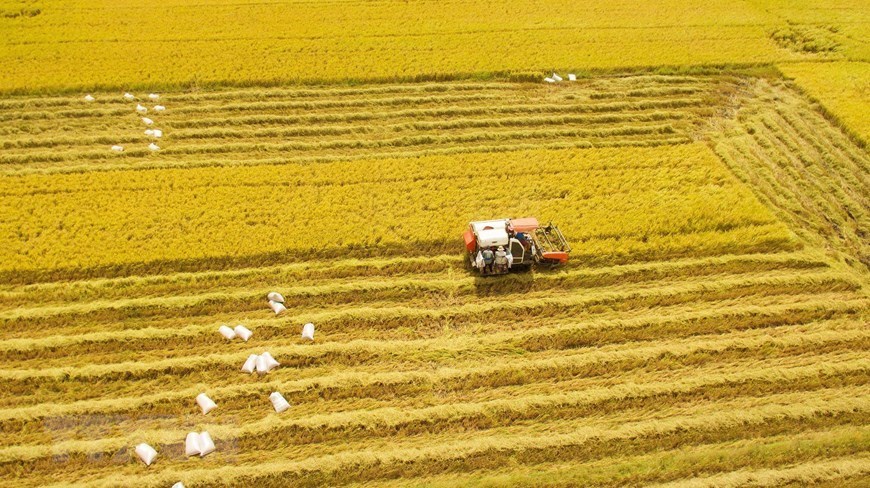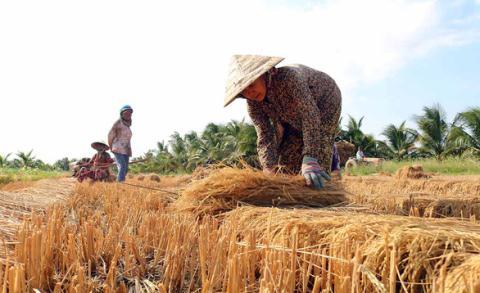- © Copyright of Vietnamnet Global.
- Tel: 024 3772 7988 Fax: (024) 37722734
- Email: [email protected]
mekong delta
Update news mekong delta
How will seafood companies fare this year?
 Analysts believe that Vietnam’s seafood industry will face difficulties until the end of June.
Analysts believe that Vietnam’s seafood industry will face difficulties until the end of June.
Mismanagement causes difficulties for Vietnam's rice exporters
 Hundreds of thousands of tons of rice in enterprises’ storehouses cannot be exported because of inconsistent policies.
Hundreds of thousands of tons of rice in enterprises’ storehouses cannot be exported because of inconsistent policies.
Localities, exporters propose lifting rice export limits
 Officials from provinces and cities in the Mekong Delta – the country’s rice granary - and rice exporters have urged the government to resume rice exports without setting limits, saying many firms face difficulties because of this.
Officials from provinces and cities in the Mekong Delta – the country’s rice granary - and rice exporters have urged the government to resume rice exports without setting limits, saying many firms face difficulties because of this.
VN government cautious about exporting rice despite plentiful supply
 The Vietnamese government has decided to resume rice exports, but the debate continues about whether the country should continue to do so.
The Vietnamese government has decided to resume rice exports, but the debate continues about whether the country should continue to do so.
Mekong Delta in 50-100 years will be radically different
 Scientists predict that in 50-100 years, the Mekong Delta may be one meter below the sea water level because of climate change.
Scientists predict that in 50-100 years, the Mekong Delta may be one meter below the sea water level because of climate change.
Pink shower blossoms bloom in Mekong Delta province
 Pink shower blossoms (O moi in Vietnamese) are dubbed by locals as ‘Southwestern region’s cherry blossoms’. They are mainly seen in Phu Tan, Long Xuyen and Thoai Son districts in the Mekong Delta province of An Giang.
Pink shower blossoms (O moi in Vietnamese) are dubbed by locals as ‘Southwestern region’s cherry blossoms’. They are mainly seen in Phu Tan, Long Xuyen and Thoai Son districts in the Mekong Delta province of An Giang.
Farmers in the Mekong Delta continue switch to high-value crops
 The Mekong Delta province of Hau Giang plans to grow other crops on around 4,000ha of fields which only grow one rice crop a year or are unproductive by 2030.
The Mekong Delta province of Hau Giang plans to grow other crops on around 4,000ha of fields which only grow one rice crop a year or are unproductive by 2030.
Mekong Delta catfish farmers worry about lower prices
 The UN Food and Agriculture Organization (FAO) predicts that the total catfish output in the world will reach 3 million tons in 2020, of which 50 percent is from Vietnam.
The UN Food and Agriculture Organization (FAO) predicts that the total catfish output in the world will reach 3 million tons in 2020, of which 50 percent is from Vietnam.
Rice farmers in Mekong Delta told to follow sowing schedules as saline intrusion, drought continues
 Authorities have instructed farmers in the Mekong Delta to sow the summer – autumn rice crop on established schedules to mitigate the damage of drought, saltwater intrusion and disease.
Authorities have instructed farmers in the Mekong Delta to sow the summer – autumn rice crop on established schedules to mitigate the damage of drought, saltwater intrusion and disease.
Mekong Delta locals respond to drought and saltwater intrusion
 Since drought and saltwater intrusion are becoming severe in the Mekong Delta in the dry season, localities in the region have actively developed plans, scenarios, and implemented solutions to prevent and control drought and saltwater intrusion.
Since drought and saltwater intrusion are becoming severe in the Mekong Delta in the dry season, localities in the region have actively developed plans, scenarios, and implemented solutions to prevent and control drought and saltwater intrusion.
Agriculture Minister calls for strengthening disaster response
 Minister of Agriculture and Rural Development Nguyen Xuan Cuong wants countrywide improvements in developing plans to respond to natural disasters.
Minister of Agriculture and Rural Development Nguyen Xuan Cuong wants countrywide improvements in developing plans to respond to natural disasters.
Soc Trang declares emergency due to saline intrusion
 The Mekong Delta province of Soc Trang has declared a state of emergency after drought and saltwater intrusion hit the region, strongly affecting local residents’ lives and production.
The Mekong Delta province of Soc Trang has declared a state of emergency after drought and saltwater intrusion hit the region, strongly affecting local residents’ lives and production.
VN universities provide scholarships to ease burden on disadvantaged students
 Many universities in HCM City plan to provide scholarships to students whose families’ livelihoods have been affected by the COVID-19 pandemic or who live in the Mekong Delta and are affected by drought and saltwater intrusion.
Many universities in HCM City plan to provide scholarships to students whose families’ livelihoods have been affected by the COVID-19 pandemic or who live in the Mekong Delta and are affected by drought and saltwater intrusion.
Mekong Delta supplied free freshwater
 Thousands of people in the Mekong Delta Region have been given free freshwater to deal with the on-going drought and saline intrusion.
Thousands of people in the Mekong Delta Region have been given free freshwater to deal with the on-going drought and saline intrusion.
Heavy rains bring cheer to Mekong Delta farmers
 There were heavy rains yesterday, April 13, in many provinces and cities in the Mekong (Cuu Long) Delta, bringing much-needed water to hundreds of hectares of fruits, vegetables and paddy parched by drought and a water shortage.
There were heavy rains yesterday, April 13, in many provinces and cities in the Mekong (Cuu Long) Delta, bringing much-needed water to hundreds of hectares of fruits, vegetables and paddy parched by drought and a water shortage.
Farm exports to EU and US stuck, Vietnam looks to China, ASEAN
 In order to export $42 billion worth of products as planned, exports to China need to grow by 10 percent and to ASEAN by 9 percent to offset the decline in exports to the US and EU.
In order to export $42 billion worth of products as planned, exports to China need to grow by 10 percent and to ASEAN by 9 percent to offset the decline in exports to the US and EU.
Is Vietnam becoming more and more addicted to coal?
 While the world is fleeing from coal, Vietnam is becoming increasingly addicted to coal, according to Nguyen Dang Anh Thi, an energy and enviornment expert.
While the world is fleeing from coal, Vietnam is becoming increasingly addicted to coal, according to Nguyen Dang Anh Thi, an energy and enviornment expert.
VN diversifies investments in special-use forests
 The government of Vietnam has been trying to diversify investments in special-use forests (SUF) in order to improve financial flows for forest management, protection and conservation activities.
The government of Vietnam has been trying to diversify investments in special-use forests (SUF) in order to improve financial flows for forest management, protection and conservation activities.
Mekong Delta enjoys bumper rice crop
 Despite being affected by drought and saltwater intrusion, the Mekong Delta harvested a record output of about 7.3 million tons of rice in the Winter-Spring crop 2019-2020.
Despite being affected by drought and saltwater intrusion, the Mekong Delta harvested a record output of about 7.3 million tons of rice in the Winter-Spring crop 2019-2020.
Seawater filtering, water transfer will not save the Mekong Delta: expert
 If the local population continues to grow uncontrollably, all measures to be applied, from seawater filtering to water transfer from the east to the west, will become useless, experts say.
If the local population continues to grow uncontrollably, all measures to be applied, from seawater filtering to water transfer from the east to the west, will become useless, experts say.


